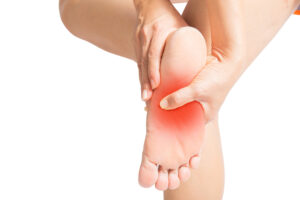What Vitamins Are Good for Peripheral Neuropathy?

Peripheral neuropathy is a condition that affects the nerves outside the brain and spinal cord, leading to symptoms such as tingling, numbness, weakness, and pain in the hands and feet. It can be caused by diabetes, infections, injuries, or exposure to toxins. While traditional treatments include medications, physical therapy, and lifestyle changes, many individuals seek natural solutions such as Peripheral Neuropathy Herbal Supplements and vitamins to help manage symptoms and improve nerve health. The best vitamins for peripheral neuropathy and how they contribute to nerve repair and function.

1. Vitamin B Complex
The B vitamins are essential for nerve health, and deficiencies in these nutrients can lead to or worsen peripheral neuropathy.
Vitamin B1 (Thiamine)
Thiamine plays a crucial role in nerve function by helping to convert carbohydrates into energy. A deficiency in thiamine can result in nerve damage, leading to neuropathic pain and weakness. Some studies suggest that benfotiamine, a fat-soluble form of thiamine, is particularly effective in reducing nerve pain in diabetic neuropathy.
Food Sources: Whole grains, pork, legumes, nuts, and seeds.
Vitamin B6 (Pyridoxine)
Vitamin B6 is essential for neurotransmitter production and nerve function. However, excessive intake can be toxic and lead to neuropathy symptoms. The recommended daily intake should not exceed 100 mg per day.
Food Sources: Bananas, poultry, fish, potatoes, and fortified cereals.
Vitamin B12 (Cobalamin)
B12 is vital for nerve regeneration and myelin sheath protection. A deficiency in B12 can cause severe neuropathy, leading to tingling sensations and muscle weakness.
Food Sources: Meat, fish, dairy products, and fortified plant-based alternatives.

2. Alpha-Lipoic Acid (ALA)
Alpha-lipoic acid is a powerful antioxidant that helps reduce oxidative stress and inflammation, which contribute to nerve damage. Studies have shown that ALA can improve symptoms of diabetic neuropathy, such as burning pain and numbness.
Food Sources: Spinach, broccoli, potatoes, and organ meats.
3. Vitamin D
Vitamin D plays a crucial role in nerve function and immune health. Deficiencies have been linked to increased pain sensitivity and nerve damage. Studies indicate that supplementing with vitamin D may help alleviate neuropathic pain.
Food Sources: Fatty fish, fortified dairy products, and sunlight exposure.
4. Vitamin E
Vitamin E is an antioxidant that protects nerve cells from oxidative damage. It has been shown to help with neuropathy symptoms, particularly in individuals with diabetes or chemotherapy-induced neuropathy.
Food Sources: Nuts, seeds, spinach, and avocados.
5. Magnesium
Magnesium plays a role in nerve transmission and muscle relaxation. A deficiency in magnesium can contribute to muscle cramps, nerve pain, and heightened sensitivity to pain.
Food Sources: Dark leafy greens, nuts, seeds, and whole grains.
6. Omega-3 Fatty Acids
While not a vitamin, omega-3 fatty acids have neuroprotective properties that help reduce inflammation and support nerve repair. Fish oil supplements have shown promise in improving nerve function and reducing pain in individuals with peripheral neuropathy.
Food Sources: Fatty fish (salmon, mackerel), flaxseeds, and walnuts.
7. Acetyl-L-Carnitine
Acetyl-L-carnitine is an amino acid that supports nerve function and energy metabolism. It has been found to reduce pain and promote nerve regeneration in individuals with diabetic neuropathy.
Food Sources: Dairy, poultry, and red meat.
8. Herbal Supplements for Peripheral Neuropathy
In addition to vitamins, Peripheral Neuropathy Herbal Supplements can be beneficial. Some well-known herbal remedies include:
Turmeric (Curcumin)
Curcumin, the active compound in turmeric, has potent anti-inflammatory and antioxidant properties that may help alleviate neuropathic pain.
Gingko Biloba
Gingko biloba improves circulation and supports nerve regeneration, making it a useful supplement for individuals experiencing nerve pain and numbness.
St. John’s Wort
This herb has natural antidepressant and analgesic properties, which may help relieve nerve pain and improve mood.
Cayenne Pepper (Capsaicin)
Capsaicin, the active compound in cayenne pepper, helps reduce pain by decreasing the levels of substance P, a pain-signaling neurotransmitter.
Final Thoughts
Peripheral neuropathy can significantly impact daily life, but proper nutrition and supplementation can support nerve health and reduce symptoms. Peripheral Neuropathy Herbal Supplements combined with essential vitamins, such as B-complex vitamins, alpha-lipoic acid, vitamin D, and omega-3 fatty acids, may help alleviate pain and promote nerve regeneration. However, always consult a healthcare professional before starting any supplement regimen to ensure safety and effectiveness.
By incorporating these vitamins and herbal supplements into your daily routine, you can take proactive steps toward managing peripheral neuropathy and improving overall nerve health.





